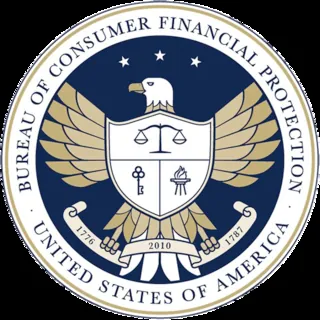Consumer Financial Protection Bureau
The Consumer Financial Protection Bureau (CFPB) is an independent agency of the United States government responsible for consumer protection in the financial sector. CFPB's jurisdiction includes banks, credit unions, securities firms, payday lenders, mortgage-servicing operations, foreclosure relief services, debt collectors, and other financial companies operating in the United States. Since its founding, the CFPB has used technology tools to monitor how financial entities used social media and algorithms to target consumers.

Some of the key events about Consumer Financial Protection Bureau
- 2011Established as an independent agency to protect consumers in the financial sector
- 2011The agency faced criticism for its broad regulatory powers and potential to overreach in financial markets
- 2012Introduced the "Know Before You Owe" mortgage disclosure rule to simplify mortgage paperwork
- 2012Controversy arose over the recess appointment of the agency's first director, which was later ruled unconstitutional
- 2013Implemented new mortgage servicing rules to protect homeowners from foreclosure
- 2013The agency's data collection practices raised privacy concerns among lawmakers and financial institutions
- 2014Launched a public Consumer Complaint Database to increase transparency in financial services
- 2015Took action against Sprint and Verizon for illegal mobile cramming, resulting in $120 million in redress
- 2015A court ruling found the CFPB's structure unconstitutional, citing excessive independence from executive oversight
- 2016Secured $100 million in relief for consumers harmed by Wells Fargo's illegal account opening practices
- 2016The agency was accused of overstepping its authority in regulating auto lenders
- 2017Issued a rule to ban companies from using mandatory arbitration clauses to deny groups of consumers their day in court
- 2017The agency's leadership structure was challenged, leading to a legal battle over who should lead the bureau
- 2018Fined Wells Fargo $1 billion for auto loan and mortgage abuses
- 2018The CFPB faced criticism for reducing enforcement actions and fines against financial institutions
- 2019Launched a financial education tool called "Misadventures in Money Management" for service members
- 2019The agency proposed rolling back certain provisions of the payday lending rule, drawing criticism from consumer advocates
- 2020Provided COVID-19 related consumer resources and guidance during the pandemic
- 2020The Supreme Court ruled that the CFPB's leadership structure was unconstitutional, allowing the president to fire the director at will
- 2022The agency faced backlash for proposing a rule that would allow it to examine nonbank financial companies without public notice
Disclaimer: This material is written based on information taken from open sources, including Wikipedia, news media, podcasts, and other public sources.
Consumer Financial Protection Bureau Latest news

Musk suggests shutting down major financial watchdog in new Trump role
In his fresh govt-efficiency position **Elon Musk** wants to close consumer protection agency. The move comes as part of Trumpʼs plans to re-shape financial oversight system
Business, Economics, Politics • November 28 2024 , 12:49 AM • 4047 views

Federal watchdog targets Meta's financial data handling in ad business
Meta faces potential legal consequences from consumer protection agency over its ad practices. The social-media company might have mishandled third-party financial information in its advertising system
Society, Business • October 31 2024 , 11:35 PM • 1466 views































